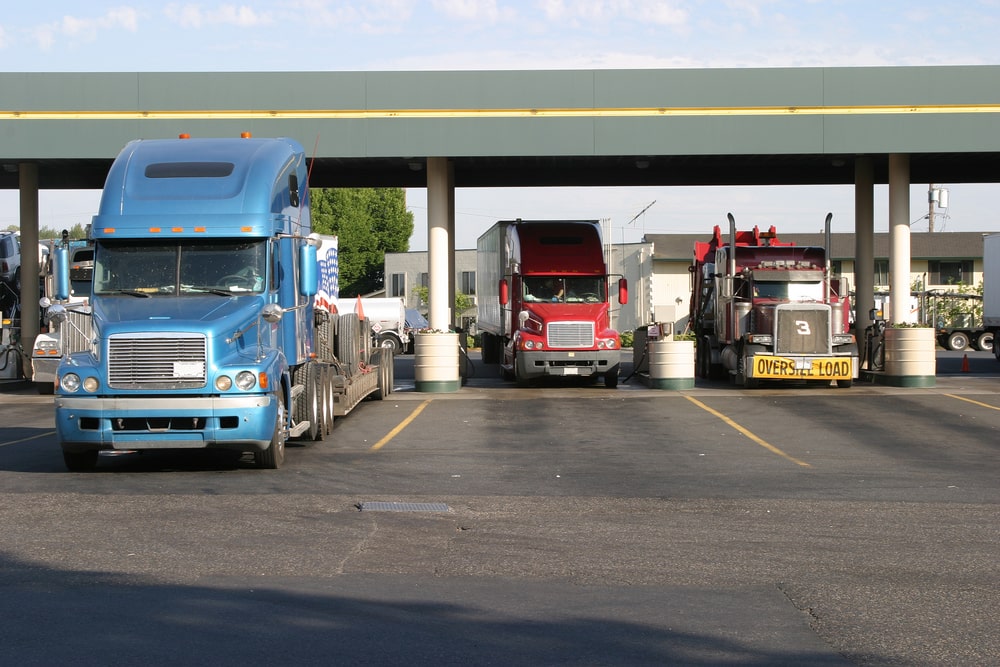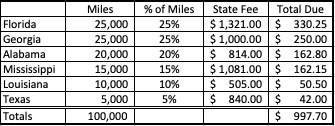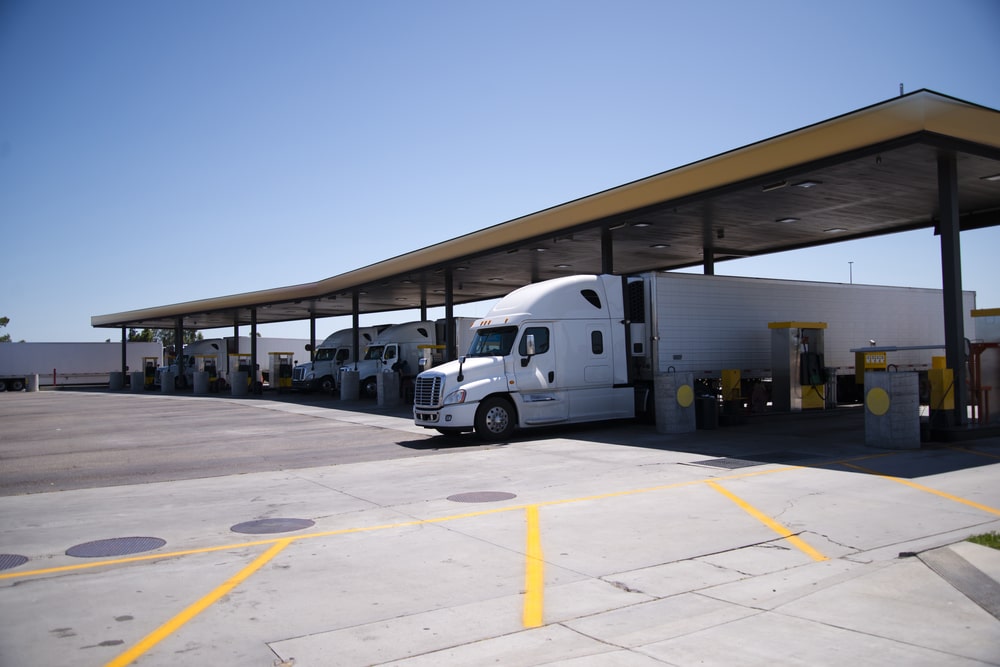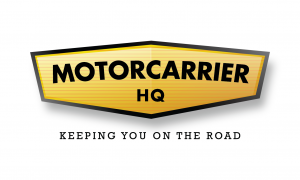February 23, 2021
IRP, Apportioned Plates, and IFTA: What’s the Difference?

We’ve covered what IRP and apportioned registration is in the past, but there’s more to the rules and regulations to keep your trucking company compliant. Two of the most common: IRP and IFTA. Here’s a general overview of what these two terms are:
| International Registration Plan (IRP) | IRP is an agreement among all the United States and provinces of Canada to adjust fees based on the proportion of miles you’ve traveled in each state. |
| International Fuel Tax Agreement (IFTA) | IFTA is an agreement between participating states (all but Oregon) to pay taxes based on the amount of miles traveled in the state instead of where the fuel was purchased. |
| Apportioned Plates | Apportioned plates are the type of plate you receive when you register under the IRP. They are used for trucking businesses that plan to travel in more than two jurisdictions under the IRP and exceed a certain weight limit. |
| Commercial Plates | Commercial plates are a type of registration for trucks staying in one state. Whether or not you need a commercial plate depends on the weight of your vehicle and what you intend to use your vehicle for. |
| Combination Plates | Combination plates are for vehicles registered for both commercial and private use. They are also used when a vehicle meets a certain weight limit even if the vehicle is for personal use. |
What Is IRP?
IRP is designed to help states manage their roads with the fees from registered trucking companies because trucks cause a lot of wear and tear on roads. Once you register under the IRP, your company will be provided with an apportioned license plate.
This apportioned license plate signifies that your registration fees will be calculated based on where your trucking company travels. IRP fees vary based on the fees of each jurisdiction and how much you traveled in each state or country.
When you register your business, you can expect the cost of IRP to vary each year based on what roads you plan to haul in. If you’re required to register under IRP, you may also have to follow other regulations, like purchasing the correct trucking insurance, too.
What’s the Difference Between IRP and Apportioned Registration?
IRP and apportioned registration are essentially the same. When you register under IRP, it provides apportioned plates. Apportioned means what you pay varies based on the portion of miles traveled in each state.
Read More: What Is IRP or Apportioned Registration?
What Is IFTA?
IFTA stands for International Fuel Tax Agreement and it’s completely separate from IRP. While both are calculated by the number of miles traveled in each state, the organizations who take the fees are different, and the money is used in different ways.
IFTA is designed to pay for fuel taxes based on the amount of miles traveled in each state and where you purchase fuel. IFTA is used to evenly distribute the taxes gathered from each state based on where the fuel is used, not just where it is purchased. Here’s an example of how IFTA works:
If you purchase your fuel in one state, such as Wyoming, but spend more time traveling through Idaho with that fuel, you’ll pay fuel taxes for the amount of miles traveled in Idaho, not the actual amount you paid in Wyoming.
With IFTA, you can expect to submit annual or quarterly fuel tax reports to balance what taxes you’ve already paid compared to what you may owe. Depending on where you purchased fuel, you might have to pay more taxes or get a return on what you’ve already paid.
We’ve covered a little more about how it works and even how you can save money on fuel in our podcast Haulin Assets. Listen to episode 29 to learn how to save money by understanding how IFTA works.
Read More: What Is IFTA?
Who Is Required To Register Under IRP and IFTA?
The requirements for IRP and IFTA are similar, so if you register for one, you most likely will need to register for the other. However, this can change depending on where your company is located and where you plan on hauling loads.
You are required to register under IRP and IFTA if you operate a qualified motor vehicle based in a participating jurisdiction and plan on operating in two or more member jurisdictions. A qualified motor vehicle according to IFTA is a vehicle that is used to transport persons or property and:
- Has 2 axles and a GVW or GVWR over 26,000 lbs. or
- Has 3 or more axles or
- Is used in combination and exceeds 26,000 lbs.
If you have any questions about what you need to register for and if your business needs it, talk to the coaches at Motor Carrier HQ.
What Are Commercial Plates?
Commercial license plates are a specific type of plate that showcases whether or not your vehicle is used as for-hire or to transport passengers. Each state might have slightly different requirements for whether or not you need to register your vehicle as a commercial vehicle.
Understanding commercial plates and the regulations you have to follow are especially important if you’re planning on staying in one state, as commercial plates are often used when you aren’t required to register under IRP.
What’s the Difference Between Apportioned Plates and Commercial Plates?
The main differences between apportioned plates and commercial plates are the requirements you need to meet. If you’re planning on hauling in more than one state and have a vehicle over 10,000 lbs., you should consider registering under IRP for your apportioned plates.
If you’re planning on using a vehicle for-hire, but don’t plan on leaving the state or don’t meet certain weight requirements, you may only need commercial plates.
There are other exceptions to consider. For example, you might stay in one state but choose to do one or two trips out of your base state. In that case, you can invest in trip permits instead of registering under IRP. However, it’s very easy to pay more for trip permits than it would to register, so make sure you do your research to figure out which option can save your company money.
What Are Combination Plates?
Combination plates are for vehicles that are used commercially and personally. They may also be used for certain vehicles that have a weight below IRP and IFTA’s requirements. Each state has different weight requirements and regulations regarding combination plates, but these types of plates are most commonly used with farm equipment or lighter trailers.
Need Help Registering Your Vehicle?
Understanding IRP and IFTA are key parts of running your own trucking company. If you need any help navigating the paperwork and regulations that come with starting a trucking company, get in touch with one of the coaches at Motor Carrier HQ! We’re happy to provide a no-obligation consultation to help you determine what your company needs to save money and avoid fines from the Federal Motor Carrier Safety Administration (FMCSA).
You can also listen to our podcast Haulin Assets for more information on how to start and run a successful trucking business!




